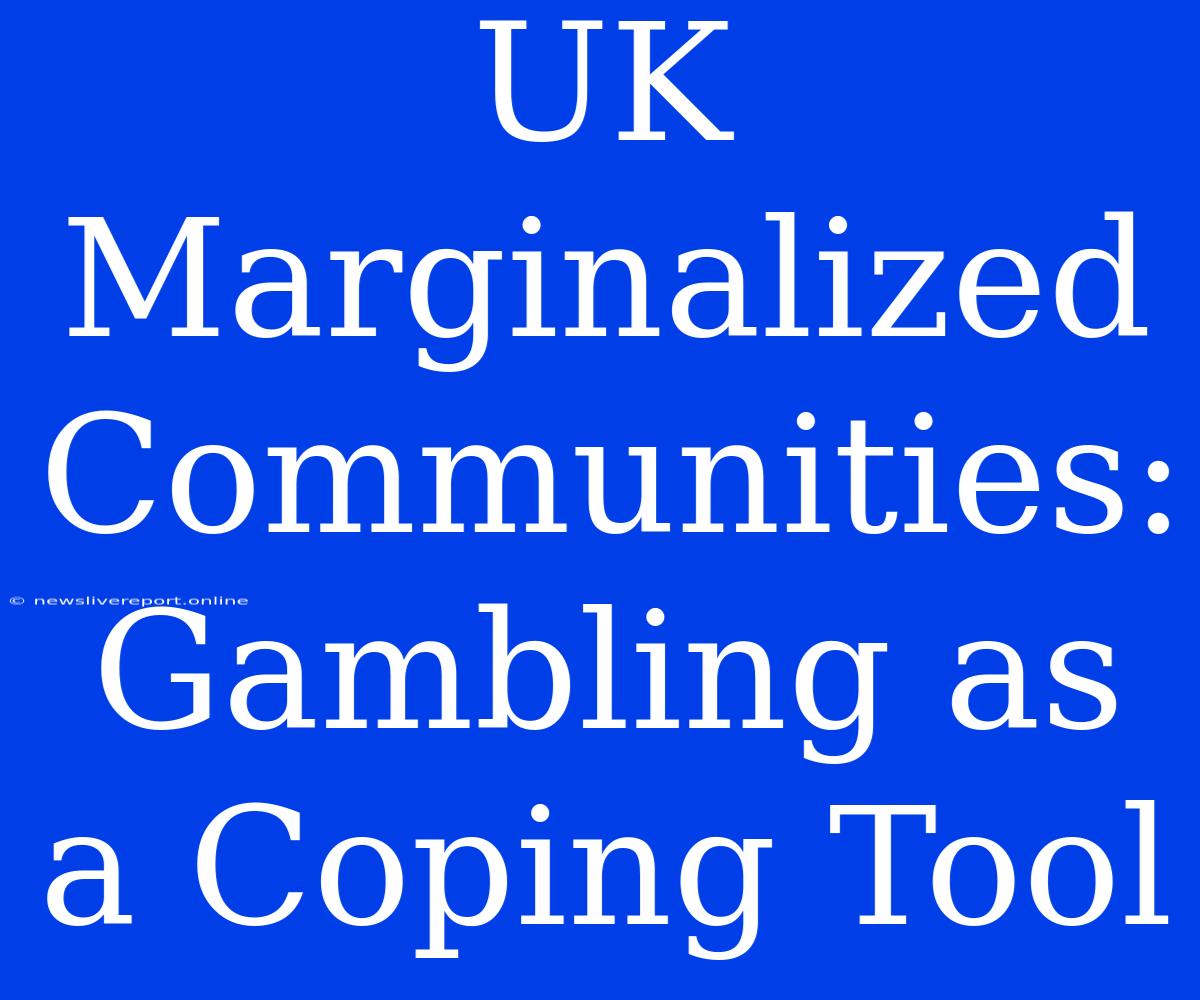UK Marginalized Communities: Gambling as a Coping Tool - A Dangerous Trend
The UK faces a growing problem of gambling addiction, particularly within marginalized communities. This article delves into the complex relationship between marginalization, social pressures, and the use of gambling as a coping mechanism.
Why are Marginalized Communities at Risk?
Marginalized communities often experience higher rates of poverty, unemployment, and social exclusion. These factors contribute to a cycle of stress, anxiety, and despair. This is where gambling, often seen as a quick fix, can become a dangerous escape.
Gambling as a Coping Mechanism:
For many individuals within these communities, gambling offers a temporary escape from the harsh realities of their lives. The adrenaline rush and excitement associated with the act of gambling can provide a fleeting sense of control, purpose, and even hope. It can also act as a distraction from the daily struggles they face.
The Harmful Impacts of Gambling Addiction:
However, the allure of quick wins and escape often masks the devastating consequences of gambling addiction. This can lead to:
- Financial ruin: The constant chase for wins can lead to significant debt, affecting individuals' ability to meet basic needs like housing, food, and healthcare.
- Relationship breakdown: The secrecy and isolation associated with gambling addiction can put a strain on relationships with family, friends, and partners.
- Mental health issues: Gambling addiction can trigger or exacerbate mental health problems such as depression, anxiety, and suicidal thoughts.
- Increased crime: Individuals facing financial hardship may resort to criminal activities to fund their gambling habit.
Addressing the Problem:
It is crucial to acknowledge the underlying social and economic factors that contribute to the higher rates of gambling addiction in marginalized communities.
Here are some potential solutions:
- Increased awareness and education: Raising awareness about the dangers of gambling addiction, particularly in communities most at risk, is crucial.
- Improved access to support services: Providing easy access to counseling, therapy, and financial support for those struggling with gambling addiction.
- Regulation and responsible gambling initiatives: Stricter regulations on gambling advertising, especially those targeting vulnerable groups, can play a vital role.
- Social and economic reforms: Addressing the root causes of marginalization, such as poverty, unemployment, and social exclusion, is essential for long-term solutions.
Conclusion:
Gambling is a complex issue with significant implications for individuals and society as a whole. Recognizing the specific challenges faced by marginalized communities and providing them with the necessary support and resources is crucial in preventing further harm. This requires a collaborative effort from governments, healthcare professionals, community organizations, and individuals to address this critical societal problem.

